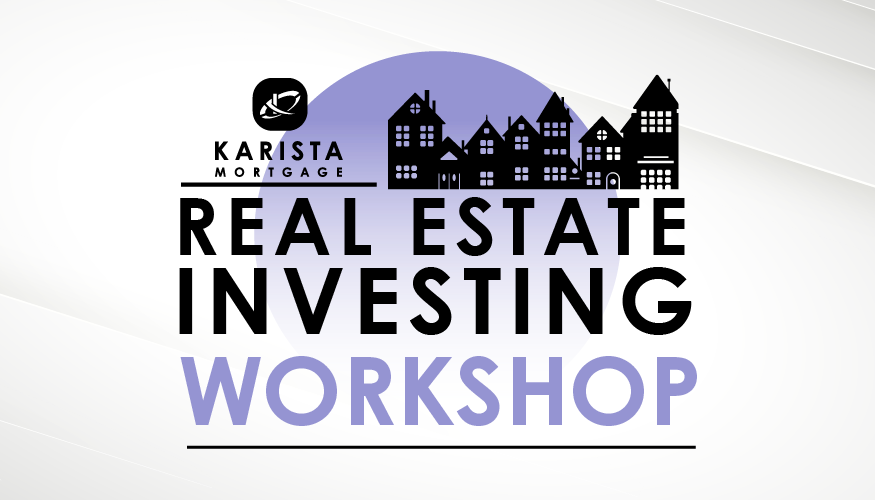
When the value of your home increases, what should you do? Can you take advantage of the increased in value? If yes, how? Listed below are eight major principles to take into consideration when refinancing.
1. Home Equity
Equity is basically the difference between the market value of your property and the balance of the mortgage.
Equity = Market Value – Mortgage Balance
If you sell your property you get to keep all of the Equity after paying the realtor fees, legal fees and the bank fees on top of the mortgage balance (including penalties if applicable and administration costs).
If you are not selling the property you cannot use all of the equity available to you. By law you can only borrow up to 80% of the value of the home. Here’s the formula to find out how much equity you can refinance in addition to your current mortgage:
Equity Available to Refinance = Market Value x 80% – Mortgage Balance
Let’s use a case study. Property Value $500,000, mortgage balance $250,000. Using the formula = $500,000 x 80% = $400,000 minus $250,000 (because you borrowed that money already) = $150,000 equity that you can borrow on top of your existing mortgage. The $150,000 will be a new mortgage on top of your existing mortgage that you can use for various purposes.
2. Purpose
In the example above, you have $150,000 equity available for you to borrow or to refinance. What can you do with that money? How can you use it?
a) Debt consolidation: Some clients have multiple credit cards, lines of credits and loans. Rates can range from 8% – 25% depending on the lender or credit card company. If you read the fine print on the credit card bill, you will see that it will say – it will take you 40 years to pay this off. Also, interest on credit card is added back into the balance so you pay interest on interest. Owing money on your credit card is a never ever ending payment plan. If you choose to use the equity of your home to refinance, you will have only one smaller simpler payment. You will save money – some of our clients have saved from $500 – $3000 per month! $3,000 over 5 years is a total savings of $180,000. Not to mention the peace of mind that you get if you don’t have multiple payments you have to manage on a day to day basis
b) Renovation: Some clients refinance to renovate their property or properties. Renovations can cost money, you don’t want to use your credit card to cover it. Also, when you renovate you are enhancing the value of a long term asset, the mortgage is a long term loan. I makes sense that you use long term financing for a long term benefit. You don’t want to use your line of credit or your credit card, especially if you cannot pay it off in a year. Lines of credits are for short term borrowing purposes only, and especially credit cards that cost you a lot in interest. When you renovate you also enhance the value of your home. Therefore, even if the mortgage balance goes up, the value of your home is also going up, hence your equity is still improving.
c) Investments: Some clients use the equity of their home for investments. Some use it to purchase RRSP, properties in other countries or a downpayment for another property for rental or downpayment for their kids home or for injecting into a business. The one financial advantage that you get when you use the money for investments (except for buying RRSP), you can write off the interest when you file your tax return. This is possible because according to tax law, as long as the money was used to generate additional income, you can write off the interest you paid on the loan.
d) Divorce or Buyout of co-owners: When couples are divorcing, one party may want to keep the property and payout the other party the equity that is currently available. That is possible during a refinance Also, sometimes siblings, friends and other family members buy property together and then later decide to go their separate ways. We’ve helped them make this possible by refinancing the home and buying out the other party. (we will cover this in another blog).
e) Other Purposes: We’ve helped other people refinance for other purposes namely: tuition fee for their children, medical emergency for a family member here or the family member can be in another country, education for themselves, cash for lifestyle improvement (for Seniors we’ve used their equity in their home to give them a better lifestyle and cash flow to fund their life), retirement solution, etc.
3. Refinancing Cose
You will pay interest on the money that you borrow on top of your existing mortgage. If you have to pay off the existing mortgage prior to the maturity date you will incur penalties, and it can still be worthwhile depending on the purpose. You will also be paying legal fee and appraisal fee. Ask your mortgage professional about a more detailed breakdown because it varies depending on the complexity of the your purpose.
4. Income Verification
Even if you have a huge amount of equity available to refinance, the lender is not just going to give that to you automatically. You still have to qualify. Lender will check your income and make sure that you follow the current lending guidelines. The current guidelines dictate that we have to subject your income under the stress test. This means, we have to put your income under a test. Can your income handle the new payment if we pretend that the rate you are paying is 2% higher than what you are actually paying.
The government wants to make sure that in the event of a financial crisis, if rates go up by 2% can you still afford to make the payment. Hence, when you are dealing with a mortgage professional they will verify your income upfront. They will be asking for documents to make sure that you qualify. Be prepared to provide them with everything they need. Remember, you are borrowing hundreds of thousands worth of money, you want to make sure you provide them everything they need. If you were lending somebody money, wouldn’t you check if they can afford it too? You wouldn’t just take their word for it right?
5. Your Credit Score
All lenders will check your credit. Some lenders will only allow you to refinance if pass their minimum credit score requirement. Each bank is different hence it’s important that you deal with a mortgage professional who knows the requirements of all the lenders. Also, it is not wise for you to go to all the banks and apply for a refinance by yourself. Everytime a bank checks your credit, will cost you a drop in your score. The algorithms of the credit reporting agency will identify you as an active seeker of debt (as far as it’s concerned you can potentially be applying of $50,000 of loans or credit card from multiple banks). It doesn’t know that you are applying for a refinance, all it knows is you are applying for a loan. If you work with a mortgage professional they can use their one credit check with multiple banks thus protecting your credit score and credit rating.
6. Rate & Terms
Before refinancing it is important to establish your goals to determine which mortgage product meets your individual needs. No two rates are alike. There are rates that are posted on the internet with various detrimental hazards that you won’t know until it’s too late. Again if you are working with a professional that you can trust they can navigate you towards the best mortgage rate with the best terms that will not bite you in the end. One client didn’t know that
the mortgage they got was a type of mortgage that they cannot refinance. So even though they had $300,000 in equity they cannot use it because they are not allowed to. This is just one of the many examples of you get what you pay for. Cheap is expensive, and you get what you pay for.
In Conclusion
Just Like in many financial transactions, mortgage refinancing is multifaceted and requires diligence on the part of homeowners considering it. You can start that diligence by reading more Articles and carrying out more research on refinancing online. Most importantly consult a reputable mortgage professional for accurate and quick answers to some of your personal concerns. This will help you make the important decision as to whether refinancing is right for you or not.
If you want to know more about your refinancing options please email us at team@karista.ca for a no obligation consultation or call us at (604) 436-4600 and we will be happy to answer your concerns.







